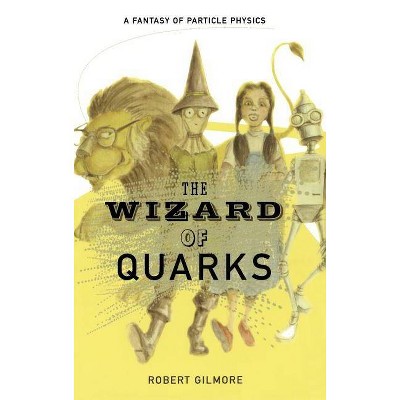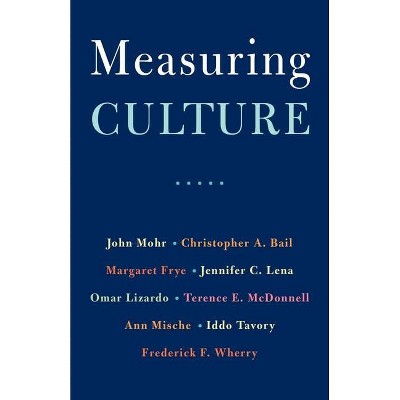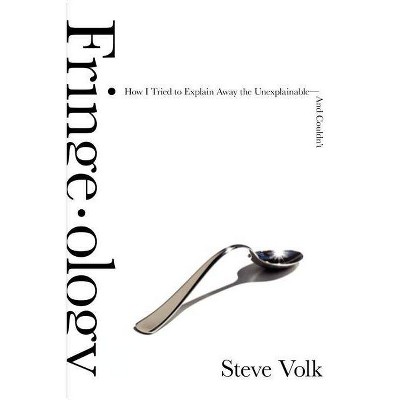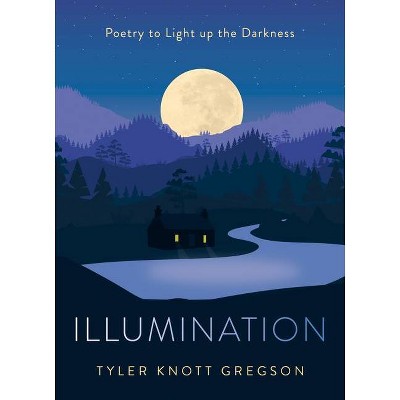Quarks to Culture - by Tyler Volk (Hardcover)
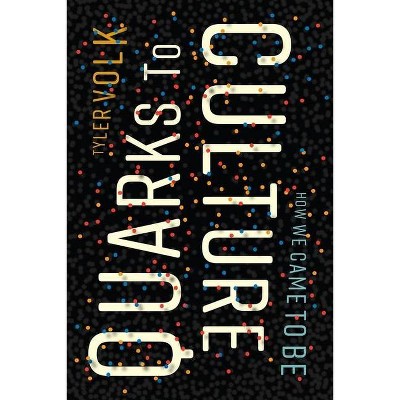
Similar Products
Products of same category from the store
AllProduct info
<p/><br></br><p><b> About the Book </b></p></br></br>Quarks to Culture explores the rhythm within what Tyler Volk calls the "grand sequence," a series of levels of sizes and innovations building from elementary quanta to globalized human civilization. The key is "combogenesis," the building-up from combination and integration to produce new things with innovative relations.<p/><br></br><p><b> Book Synopsis </b></p></br></br>Our world is nested, both physically and socially, and at each level we find innovations that are necessary for the next. Consider: atoms combine to form molecules, molecules combine to form single-celled organisms; when people come together, they build societies. Physics has gone far in mapping the basic mechanics of the simplest things and the dynamics of the overall nesting, as have biology and the social sciences for their fields. But what can we say about this beautifully complex whole? How does one stage shape another, and what can we learn about human existence through understanding an enlarged field of creation and being? <p/>In <i>Quarks to Culture</i>, Tyler Volk answers these questions, revealing how a universal natural rhythm--building from smaller things into larger, more complex things--resulted in a grand sequence of twelve fundamental levels across the realms of physics, biology, and culture. He introduces the key concept of "combogenesis," the building-up from combination and integration to produce new things with innovative relations. He explores common themes in how physics and chemistry led to biological evolution, and biological evolution to cultural evolution. Volk also provides insights into linkages across the sciences and fields of scholarship, and presents an exciting synthesis of ideas along a sequence of things and relations, from physical to living to cultural. The resulting inclusive natural philosophy brings clarity to our place in the world, offering a roadmap for those who seek to understand big history and wrestle with questions of how we came to be.<p/><br></br><p><b> Review Quotes </b></p></br></br><br><i>Quarks to Culture </i>is engagingly written, often chatty (a style I personally enjoy). To wade into subatomic particle physics as a biologist is courageous of Volk, but he seems to have read up on the topic and spoken to plenty of colleagues who explained it to him. Volk excels at translating that for his readers, kindling a new interest in me. Despite the questions and eyebrows this book might raise for some, if you read it in the spirit it was intended - a thought experiment rather than a fully fledged theory - I expect you will find it a rewarding and thought-provoking intellectual exercise.--Leon Vlieger "Inquisitive Biologist "<br><br>The fact that [Volk] accomplishes this grand sweep within just 250 pages makes the book a superb contribution deserving of wide readership. . . .With impressive learning, rigorous analysis, and artful writing."--Science<br><br>While not aiming for a Theory of Everything Volk does provide a scientifically believable reconstruction of 'how we came to be'...[in his] very rich and stimulating book.--Frank Visser "Integral World "<br><br><i>Quarks to Culture</i> is a must-read. It weaves the myriad patterns of universe, life, and consciousness into a wonderful new tapestry. Volk combines scientific rigor and love for the humanities into a gentle, no-nonsense, full-of-facts, passionately well-written, fundamental new guide to help us better see ourselves in this ever-changing world.--Francesco Tubiello, United Nations Food and Agriculture Organization<br><br>It's hard to convey the excitement of what Tyler Volk has achieved in Quarks to Culture. Here we have well-chosen words, in crystal-clear paragraphs, combining to form compelling chapters, all of which add up to a convincing account of where we humans fit in the grand scheme of things. Volk is, in short, a systems thinker. Few writers could have written such a book as this.--Liam Heneghan, DePaul University<br><br>Science advances at so fast a rate nowadays that few scholars can arrive at a big-picture understanding of the universe. Not so for Volk, who takes us on a fascinating ride from quarks to culture, explaining how the cosmos levels up at each stage, not by differentiation but by integration of existing things. A must-read for anyone interested in metapatterns and major transitions.--Nathalie Gontier, University of Lisbon<br><br>The identification of a universal principle--combogenesis--allows one to see the early history of the universe and the evolution of life and the evolution of human civilization through the same lens. An interesting, holistic way of viewing human history back to the origin of the universe.--John Mayfield, author of <i>The Engine of Complexity</i><br><br>There are many books that attempt to build grand theories of everything. This is among the best. Volk has the breadth of intellect, the insatiable curiosity, the scientific rigor, and the philosophical depth to wander so widely. He does so with both creativity and wonder, yielding a provocative thesis--combogenesis--that is boldly innovative and metaphorically evocative, while tempered by humility and open-mindedness.--Mitchell Thomashow, author of <i>Ecological Identity: Becoming a Reflective Environmentalist</i><br><br>Tyler Volk has a marvelous talent for synthesizing scientific knowledge from a broad range of fields into a single all-encompassing vision, which he imparts with wit and poetic grace. <i>Quarks to Culture</i>, which highlights deep, recurring patterns in the structure of the cosmos, will help us see our wondrous world anew.--John Horgan, director, Center for Science Writings, Stevens Institute of Technology<br><br>Tyler Volk has written a splendid book that will engage many across divides of knowledge and worldviews. Comprehensive and thought-provoking, it offers a compelling narrative of a vision forward for humans and nature.--Mary Evelyn Tucker, Yale University, coauthor of <i>Journey of the Universe</i><br><p/><br></br><p><b> About the Author </b></p></br></br><b>Tyler Volk</b> is professor of biology and environmental studies at New York University and a recipient of the University's Distinguished Teaching Award and Golden Dozen Award. His books include<i> Metapatterns: Across Space, Time, and Mind</i> (Columbia, 1995);<i> Gaia's Body: Toward a Physiology of Earth</i> (1998); and<i> CO2 Rising: The World's Greatest Environmental Challenge</i> (2008).
Price History
Price Archive shows prices from various stores, lets you see history and find the cheapest. There is no actual sale on the website. For all support, inquiry and suggestion messagescommunication@pricearchive.us
